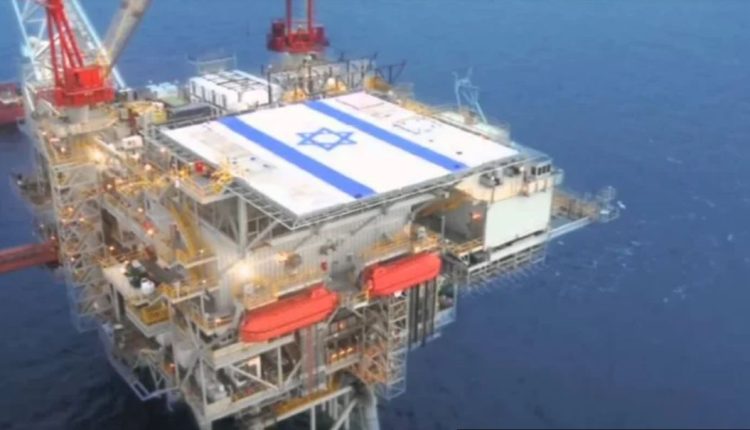SANAA, Aug. 10 (YPA) – Any deal between Egypt and “Israel” would significantly impact the course of the war against the Palestinian resistance, given Egypt’s pivotal role as a key mediator in negotiations between the two sides.
Recent tensions in the region have been reflected in Egypt’s criticism of Hamas, which it has blamed for the closure of the Rafah crossing and the deprivation of Palestinians from food aid.
In light of recent economic developments in the Middle East, the Egyptian-Israeli gas deal has emerged as one of the most significant events reshaping the regional energy map.
This deal, described as the largest in the history of the occupation, is representing a significant turning point in the Israeli economy, which is collapsing day by day due to the war and under pressure from the Yemeni armed forces, which are targeting Israeli and related vessels, and the closure of the most important commercial port of Umm al-Rashrash, known as Eilat.
The estimated value of the deal has reached $35 billion and would cover a long period extending until 2040, via the Israeli Leviathan field.
This major deal, in theory, has represented a significant boost to the Israeli economy and may generate significant gains, following a period of decline that the entity has been experiencing and continues to experience, specifically since 2023.
From another perspective, it can be said that this deal would contribute to strengthening relations between Egypt and “Israel” and guarantees huge long-term revenues for the occupation.
Energy experts said the Egyptian government were mismanaging its energy portfolio by relying on Israeli gas. Some wondered, “Is this considered support for the ‘extremist Israeli government’ in a profitable trade deal?” Or is the announcement of the deal at this time an expression of a political stance regarding the ongoing political events and military operations in the region?”
Israeli Celebration of the Deal
Israeli Energy Minister Eli Cohen said the deal was the largest in Israel’s history. He even went so far as to say that the agreement represented a security, political, and economic achievement that strengthens Israeli position as a regional energy power.
The timing of the deal was not surprising, but rather a shock to the Arab and international public. With the deterioration of relations between many European and Latin American countries with the Israeli occupation, and demands to sever trade ties with the occupation due to the brutal massacres and genocide the occupation’s committing in Gaza and Palestine in general, Cairo has moved to strengthen Tel Aviv’s economic standing.
Strong Trade Relations!
According to data from the Israeli Central Bureau of Statistics, trade relations between Egypt and the occupation witnessed a significant leap during the first nine months of 2024, growing by 51% compared to the same period in 2023, bringing the volume of bilateral trade to $430.8 million.
Monthly data has showed a clear upward trajectory on the economic front. In May, trade reached $66.4 million, rising to $76 million in July, while September alone recorded $64.5 million, a 118% annual increase compared to September 2023.
These figures confirmed that economic relations between the two countries were not affected by the war on Gaza or the ongoing crimes of the occupation. Rather, they were heading towards further expansion, despite massacres that have left 61,330 Palestinians dead and 152,359 injured, and the number is likely to increase.
Since Egypt signed the agreement to import gas from Israel in 2020, trade has been increased significantly, especially in the last three years, as follows:
2024: $3.2 billion
2023: $2.64 billion
2022: $2.14 billion
2021: $190.8 million
2020: $127 million
Behind the Scenes of the Deal
Looking behind the scenes at the Israeli-Egyptian gas deal, the scene can be summarized by saying that the signing was a continuation of blatant economic and political normalization. The issue was not limited to the size of the deal, but rather its timing, amid the ongoing bombing and blockade of Gaza.
Finally, Egypt has opened the door to strengthening the Israeli economy, clearly affirming that what is happening in Gaza does not concern its close and powerful neighbor, which is playing the role of mediator, while its hand is openly and publicly extended to the Israeli occupation, without the need for a meeting.
It should be noted here that Cairo could have sought Arab alternatives and turned to Qatar or Algeria, but it made the wrong decision at this sensitive time for the region and the Middle East.
AA


